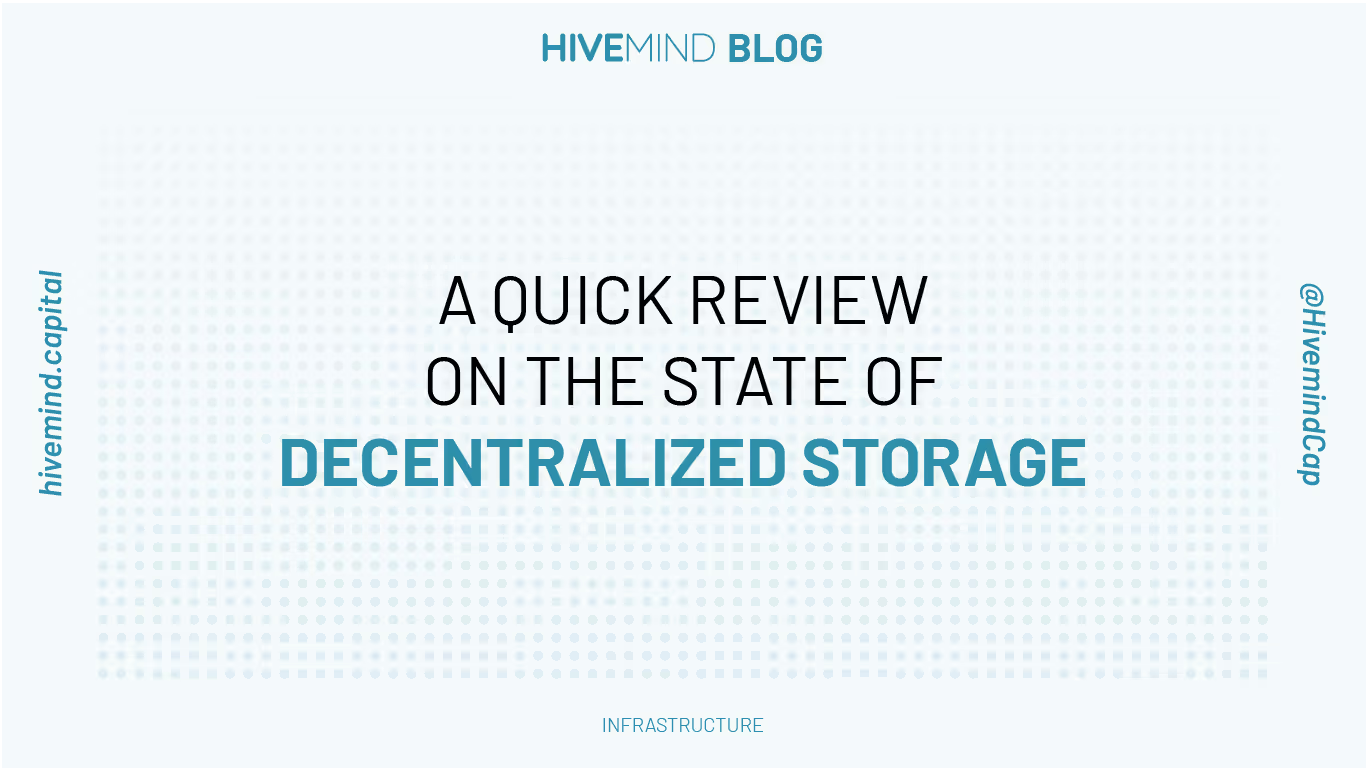
Articles
A Quick Review on the State of Decentralized Storage
April 13, 2023
Decentralized storage is often cited as a “real world” example of the benefits of blockchain, however, there are many nuances to this technology. Specifically, decentralized storage refers to a type of computer architecture in which data is distributed across a network of nodes rather than stored on a central server. Depending on your use case, this has several benefits over traditional centralized storage systems. For one, decentralized storage is more resistant to outages, censorship, and other threats that could compromise the security and availability of the stored data. Additionally, decentralized storage has the potential to be more cost-effective than centralized storage, as it does not require the centralized maintenance and resources that traditional servers do.
Major Players
There are currently a few major players in the decentralized storage space, each with its own unique features and capabilities.
Filecoin
A decentralized storage platform that utilizes a network of nodes to store and retrieve data. It is built on top of the InterPlanetary File System (IPFS), a peer-to-peer protocol for sharing files. It uses a proof-of-replication and proof-of-spacetime mechanism to incentivize node operators to store and serve data. Filecoin raised over $200 million in its initial coin offering (ICO) in 2017 and has attracted a significant amount of attention from investors and users.
Storj
Another decentralized storage platform that uses a network of nodes to store and retrieve data. It utilizes a proprietary protocol called Tardigrade, designed to be highly secure and scalable. Storj has a number of enterprise-grade features, including data-at-rest encryption, audit logging, and support for multiple storage locations.
Arweave
A decentralized storage platform that utilizes a novel technology called "permanent web." This technology allows Arweave to store data in a way that is both highly durable and cost-effective, as it does not require ongoing maintenance or resources to maintain the stored data. Arweave has attracted a number of high-profile partnerships, including with the New York Times and the Financial Times.
Sia
A decentralized storage platform that utilizes a network of nodes to store and retrieve data. It uses a proof-of-work mechanism to secure the network and incentivize node operators to store and serve data. Sia has a number of notable features, including support for multiple storage locations, end-to-end encryption, and a user-friendly interface.
Room for improvement
Despite its promise, decentralized storage is still a relatively new technology, and there are several areas where it is still lacking compared to centralized storage.
- Decentralized storage systems may not yet offer the same level of performance or reliability as centralized storage systems. AWS and Azure have armies of development and support staff, and release 40-50 new features a month.
- Decentralized storage systems may require users to have a certain level of technical expertise to use them effectively.
- Decentralized storage systems currently have the added complexity of ensuring that data is appropriately secured when distributed.
Even with these limitations, decentralized storage has the potential to revolutionize the way we store and access data and further empower the direction of travel to EDGE computing. As the technology continues to mature and gain adoption, we will likely see more platforms emerge, offering users even more choice and flexibility. In the meantime, it is important for users to carefully consider their storage needs and determine whether decentralized storage is the right fit for them.

.svg)